#cannabislaw
Photo
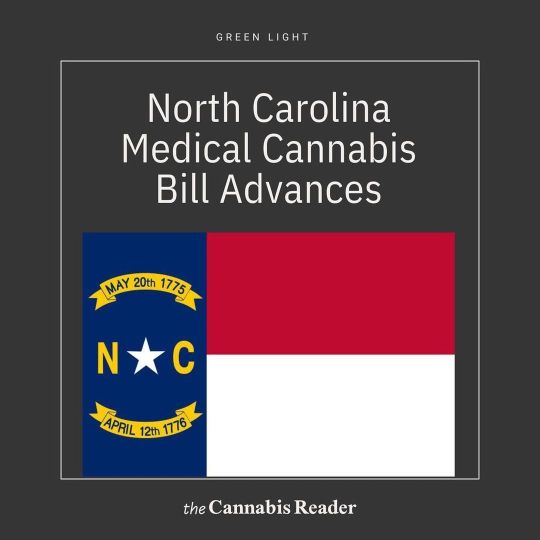
📸📰Credit @thecannabisreader ・・・ North Carolina is advancing a bipartisan medical marijuana bill through the state senate. What is within the bill and does it have a chance? How did #northcarolina reach this point? Who will this bill help if fully realized? Where will legalisation go from here? Read all about this NC bill, visit this link 👉 http://bit.ly/3ZtEjdH Follow @thecannabisreader for more such insights! #northcarolina #insights #news #usa #industrynews #awareness #bill #laws #legalcannabis #cannabislaw (at Texas USA) https://www.instagram.com/p/CpQdWYpulHn/?igshid=NGJjMDIxMWI=
6 notes
·
View notes
Text
Matthew Portnoff
1 note
·
View note
Text
Navigating the Complexities of CBD Regulation: The MHRA's Pivotal Role and Challenges in the UK's Booming Industry

Cannabidiol (CBD) is a non-psychoactive compound found in the cannabis plant. In recent years, it has gained significant attention for its potential therapeutic benefits, including anti-inflammatory, analgesic, and anxiolytic properties. As a result, the demand for CBD products has skyrocketed, with numerous manufacturers entering the market to cater to the growing consumer base.
The rise in popularity of CBD products has led to an increased need for regulation to ensure that these products are safe, effective, and of high quality. This is where the MHRA steps in, taking on the responsibility of regulating CBD products in the UK.
MHRA's Role in CBD Regulation
The MHRA's involvement in CBD regulation is primarily focused on products that are classified as medicines. These are products that make medicinal claims, such as alleviating symptoms of specific conditions or providing health benefits. To be considered a medicine, a CBD product must meet the legal requirements outlined in the Human Medicines Regulations 2012.
In order to obtain a marketing authorisation for a CBD medicine, manufacturers must provide sufficient evidence of the product's safety, quality, and efficacy. This typically involves conducting clinical trials and submitting the results to the MHRA for review. The agency then assesses the data to determine whether the product meets the necessary standards and can be authorised for sale in the UK.
The MHRA also plays a crucial role in monitoring the CBD market, identifying unauthorised products making medicinal claims, and taking enforcement action when necessary. This may include issuing warnings, fines, or even initiating criminal proceedings against companies that fail to comply with the regulations.
The Importance of MHRA Regulation in the CBD Industry

The MHRA's role in regulating CBD products is vital for several reasons:
1. Ensuring public safety: By enforcing strict standards for CBD medicines, the MHRA helps to protect consumers from potential harm caused by substandard or dangerous products.
2. Maintaining product quality: The MHRA's rigorous review process ensures that only high-quality CBD medicines are available on the market, giving consumers confidence in the products they purchase.
3. Supporting innovation: By providing a clear regulatory framework for CBD medicines, the MHRA encourages companies to invest in research and development, fostering innovation within the industry.
4. Facilitating access to effective treatments: Through its regulation of CBD medicines, the MHRA helps to ensure that patients have access to safe and effective treatments for various conditions.
Challenges Faced by the MHRA in CBD Regulation

Despite the important role played by the MHRA in regulating CBD products, the agency faces several challenges:
1. Rapidly evolving market: The CBD industry is growing at an unprecedented rate, making it difficult for regulators to keep up with the influx of new products and manufacturers.
2. Limited resources: As an executive agency, the MHRA operates within the constraints of government funding, which may limit its ability to carry out comprehensive enforcement activities.
3. Legal grey areas: The classification of certain CBD products can be unclear, leading to confusion about whether they fall under the remit of the MHRA or other regulatory bodies.
4. International coordination: With CBD products being sold across borders, the MHRA must collaborate with international counterparts to ensure consistent regulation and enforcement.
Conclusion
The Medicines and Healthcare products Regulatory Agency (MHRA) plays a crucial role in the regulation of CBD products in the UK. By ensuring that CBD medicines meet strict safety, quality, and efficacy standards, the agency helps to protect public health and maintain consumer confidence in the industry.
However, the rapidly evolving nature of the CBD market presents several challenges for the MHRA, highlighting the need for ongoing vigilance and adaptability in its regulatory approach. Ultimately, the MHRA's continued efforts in regulating CBD products will be essential in fostering a safe, high-quality, and innovative industry that benefits both consumers and patients alike.
#cbd#regulation#cbdlaw#cannabis#cannabislaw#endocannabinoidsystem#cbdoil#budandtender#health#feelgreatagain
0 notes
Photo
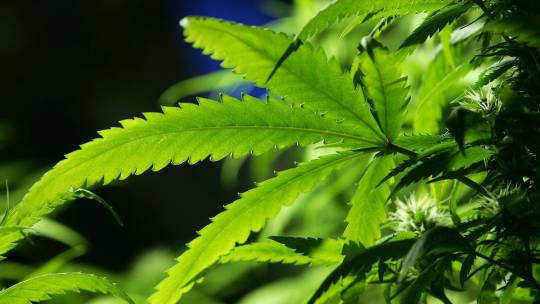
Switzerland is giving weed a try as cannabis legalization gains steam in Europe
This summer some residents of Zurich will be as high as the alps. The city and the University of Zurich will launch a study titled “Züri Can—Cannabis with Responsibility” that will examine the possibilities and effects of the regulated sale and consumption of the drug among a test group of 2,100 residents.Read more...
https://qz.com/switzerland-is-giving-weed-a-try-as-cannabis-legalizati-1850256485
#cannabis#drugcontrollaw#medicalcannabis#health#herbalism#legalityofcannabis#cannabislaw#decriminalizationofnon medicalcannabisintheunitedstates#medicine#cannabisincalifornia#medicinalplants#Clarisa Diaz#Quartz
0 notes
Text
Feeling like a #BlackDiamond in the sky - this strain is sure to take you to new heights!
Visit our Etsy store and get your digital copy of the digital poster art https://highendstrainart.com/c6j9
#CannabisCommunity#CannabisCulture#CannabisLifestyle#CannabisLegalization#CannabisIndustry#CannabisMedicine#CannabisOil#CannabisGrowers#CannabisEdibles#CannabisConcentrates#CannabisInfused#CannabisProducts#CannabisEducation#CannabisAdvocacy#CannabisResearch#CannabisBusiness#CannabisLaw
0 notes
Photo

The legal status of cannabis varies widely from country to country and even within countries. In some places, cannabis is completely illegal, while in others it is legal for both medical and recreational use. Here is a brief overview of the legal status of cannabis in some selected countries: United States: The federal government considers cannabis to be a Schedule I controlled substance, meaning it is illegal under federal law. However, many states have legalized cannabis for medical or recreational use. Canada: Cannabis is legal for both medical and recreational use nationwide. Mexico: Medical cannabis is legal in Mexico, and the country's Supreme Court has ruled that it is constitutional to do so. Recreational cannabis remains illegal, but a bill to legalize it is currently being considered by the country's senate. Brazil: Medical cannabis is legal in Brazil, but recreational use is still illegal. United Kingdom: Medical cannabis is legal in the UK, but it is highly restricted and must be prescribed by a specialist doctor. Recreational cannabis remains illegal. Germany: Medical cannabis is legal in Germany and is covered by health insurance. Recreational cannabis remains illegal, but possession of small amounts for personal use is typically not prosecuted. Australia: Medical cannabis is legal in Australia, but it is highly regulated and can be difficult to obtain. Recreational cannabis remains illegal, although some states have decriminalized possession of small amounts. Netherlands: The possession and sale of small amounts of cannabis (up to 5 grams) are tolerated in the Netherlands, but it is technically illegal. The cultivation, distribution, and sale of larger amounts are still illegal. #legalcannabis #cannabislegalization #cannabislaw #cannabisculture #cannabismovement #cannabissociety #cannabisconsumer #cannabisknowledge #cannabiseducation #cannabisfacts #cannabislife (at New Jersey, USA) https://www.instagram.com/p/CnNLXpKOBG8/?igshid=NGJjMDIxMWI=
#legalcannabis#cannabislegalization#cannabislaw#cannabisculture#cannabismovement#cannabissociety#cannabisconsumer#cannabisknowledge#cannabiseducation#cannabisfacts#cannabislife
0 notes
Photo

#Repost @heady_nj with @use.repost ・・・ The New Jersey Cannabis Regulatory Commission (NJCRC) approved 121 cannabis licenses and tentative rules for cannabis consumption areas. In contrast to the first hybrid live NJCRC meeting, the room was nearly empty. During the meeting, the NJCRC approved 113 conditional adult-use cannabis license applications, six conversions, eight annual applications, and one Alternative Treatment Center (ATC) medical cannabis dispensary expansion to adult-use cannabis. “We’re going to kinda easy this month. It’s only 113,” Executive Director Jeff Brown joked after many were issued last month. Many companies applied for a conditional license. They have to convert to what is known as an “annual license” to open their doors. The winners and rest of article continues at HEADYNJ.COM #crc #marijuana #cannabisnews #cannabislaw #cannabislegalization #cannabiscommunity #cannabisbusiness #cannabisbanking #cannabismarket #cannabisdispensary #cannabissociety #cannabiscultivation #cannabismarketing #medicalcannabis #medicalmarijuana #marijuanaindustry #marijuananews #marijuana #newjerseybusiness #newjersey #newjerseyjobs #marijuanacommunity #newjerseycannabis #NJcannabis #headynj (at Edgewater, New Jersey) https://www.instagram.com/p/ClrsS0HrjKU/?igshid=NGJjMDIxMWI=
#repost#crc#marijuana#cannabisnews#cannabislaw#cannabislegalization#cannabiscommunity#cannabisbusiness#cannabisbanking#cannabismarket#cannabisdispensary#cannabissociety#cannabiscultivation#cannabismarketing#medicalcannabis#medicalmarijuana#marijuanaindustry#marijuananews#newjerseybusiness#newjersey#newjerseyjobs#marijuanacommunity#newjerseycannabis#njcannabis#headynj
0 notes
Text
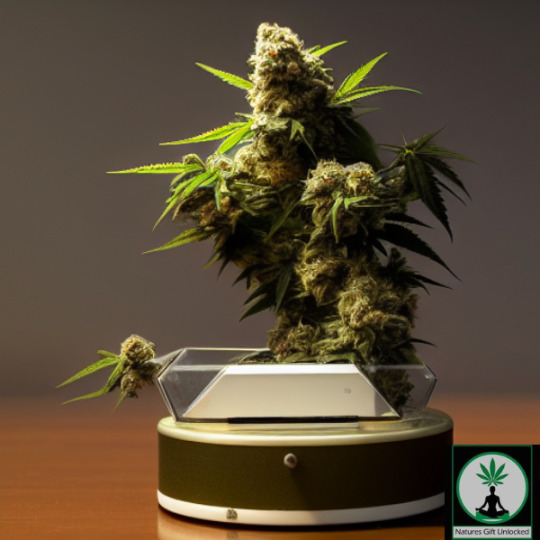
The History of Marijuana Prohibition: Unraveling the Reasons Behind its Illegality
Marijuana, a plant with a long history of medicinal and recreational use, has faced a complex journey towards its current legal status. Understanding the reasons behind its prohibition sheds light on the socio-political factors that influenced drug policies. Let's explore the origins of marijuana's illegalization and uncover some important facts.
Facts about Marijuana Prohibition:
The criminalization of marijuana in the United States began in the early 20th century, fueled by racial prejudice and political motivations.
The Marihuana Tax Act of 1937 was the first federal law to restrict the use and distribution of marijuana, effectively making it illegal.
The "Reefer Madness" era of the 1930s depicted marijuana as a dangerous drug, leading to exaggerated claims about its effects on users.
The War on Drugs initiated in the 1970s escalated marijuana enforcement efforts and contributed to its continued illegal status.
Despite growing evidence of marijuana's medicinal benefits, it remained classified as a Schedule I drug under the Controlled Substances Act.
Read the full article to delve deeper into the fascinating history of marijuana prohibition and its implications on society.
#MarijuanaProhibition#HistoryofMarijuana#CannabisLaws#DrugPolicy#LegalizationDebate#WarOnDrugs#MarijuanaLegislation#DrugProhibition#MarijuanaHistory#MarijuanaResearch
12 notes
·
View notes
Text
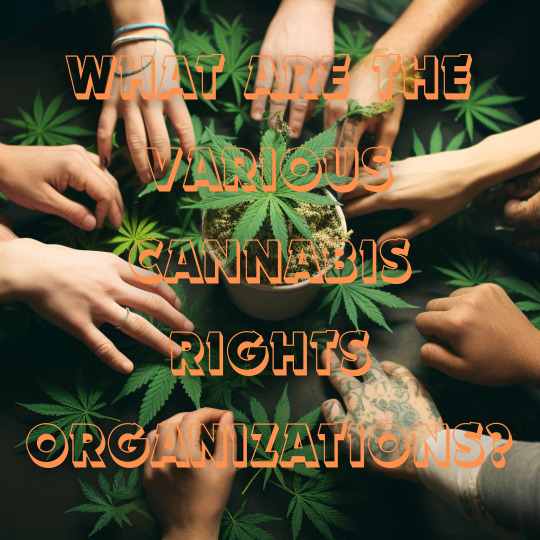
Cannabis legalization has given many individuals access to the products they need to improve their well-being. However, legalization would not be possible without cannabis rights organizations. They push policy changes that make cannabis reform possible.
#cannabisrightsorganizations#cannabisnews#cannabisreforms#cannabislaws#cannabisprotests#420central#medicaldispensary#420 central#costa mesa#licenseddispensary#orangecountydispensary#costamesadispensary#420deals
0 notes
Text

The widespread acceptance and legalization of cannabis in various parts of the world, especially in numerous US states, did not happen overnight. The tireless efforts and influential voices ...
https://tinyurl.com/yphwu2a7
#BEZKATEGORII#ADVOCACY#CANNABISACTIVISM#CANNABISLAWS#CANNABISPOLICY#CANNABISREFORM#LEGALIZATIONMOVEMENT#PIONEERSINCANNABIS#SOCIALJUSTICE
0 notes
Photo

Now that’s a karen unless there was a gag order “ non disclosure agreement then they’re in their right.. however 📸📰 @heady_nj ・・・ A Curaleaf lawsuit was filed against them by a former whistleblower employee who says he was illegally fired. Curaleaf is a cannabis corporation that is a Multi-State Operator (MSO). They operate in 23 states, including New Jersey. Curaleaf Lawsuit Details The lawsuit was filed on March 7th in Camden County. The former employee wants $150,000 plus attorney fees. Furthermore, he wants the Curaleaf lawsuit to go to court and not reach a settlement. According to NJ.com, Curaleaf is denying the allegations. An attorney for the employee also declined to comment. The suit said he got fired for saying employees were drinking the night before their legal cannabis adult-use sales began at Bellmawr. The employee said people were drinking on 4/20, which is not how it is supposed to be observed. The Curaleaf Edgewater dispensary was eager to launch adult-use legal cannabis sales but could not initially due to town laws they did not follow. Article continued on HEADYNJ.COM #cannabisnews #cannabislaw #cannabislegalization #cannabiscommunity #cannabisbusiness #cannabisbanking #cannabisevents #cannabismarket #cannabisdispensary #cannabissociety #cannabiscultivation #cannabismarketing #infused #medicalcannabis #medicalmarijuana #marijuanaindustry #marijuananews #710 #marijuana #newjerseybusiness #newjersey #newjerseyjobs #marijuanacommunity #newjerseycannabis #NJcannabis #headynj§ (at Newark Liberty International Airport) https://www.instagram.com/p/CqJe47qMwC0/?igshid=NGJjMDIxMWI=
#cannabisnews#cannabislaw#cannabislegalization#cannabiscommunity#cannabisbusiness#cannabisbanking#cannabisevents#cannabismarket#cannabisdispensary#cannabissociety#cannabiscultivation#cannabismarketing#infused#medicalcannabis#medicalmarijuana#marijuanaindustry#marijuananews#710#marijuana#newjerseybusiness#newjersey#newjerseyjobs#marijuanacommunity#newjerseycannabis#njcannabis#headynj
1 note
·
View note
Link
Welcome to the latest episode of Legalproof and Launch Your Biz podcast. Our series, CannaConversations, explores the legal landscape of the cannabis industry.
In this episode, we're going to focus on launching your cannabis business and the impact of local laws.
Whether you're a seasoned entrepreneur or just starting out in the cannabis industry, a well-written business plan is critical to the success of your venture. In this episode, we'll discuss the key elements of a strong business plan, including market analysis, financial projections, and legal considerations.
We'll also cover the unique challenges and opportunities that come with launching a legal cannabis business, such as navigating complex regulations and understanding the nuances of the market.
So whether you're just starting out in the industry or looking to take your existing cannabis business to the next level, this episode of Legalproof is a must-listen.
Tune in now to learn how to launch your cannabis business with a strong legal and business foundation.
Schedule a FREE consult: https://bit.ly/chatwithletonya
Subscribe to the Podcast on Spreaker
Follow on IG/TIKTOK @legalproofmaven
Like on FB @I Protect Your Brand
#cannabisapplication#cannabislaws#cannabislicense#legalcannabis#legalproofmaven#legalproofyourbiz#startacannabisbusiness
0 notes
Photo

The Brittney Griner trial in Russia has caused a lot of outrage in the USA, at a personal level and even at the federal level. Though the sentence for Brittney is extreme and inhumane, does the United States government have any room to speak out when they incarcerate American citizens for similar "crimes" of small-scale cannabis possession? Read our latest blog post discussing this latest news, and let us know if you agree or disagree.
0 notes
Text
The Prohibitive Marijuana Tax: A Closer Look at the Origins of Cannabis Regulation

Introduction
The history of marijuana regulation in the United States is a fascinating and complex tale, intertwined with political manoeuvring, economic interests, and societal shifts. One key moment in this story took place in the mid-1930s, when the federal government enacted the prohibitive marijuana tax, effectively criminalising the cannabis trade. This article will delve into the background of this critical legislation, examining the forces that shaped it and the consequences it had on American society.
The Secret Treasury Department Meetings (1935-1937)
Between 1935 and 1937, secret meetings were held within the Treasury Department to discuss the future of marijuana regulation in the United States. These meetings led to the drafting of prohibitive tax laws and the development of strategies to limit the availability and use of cannabis.
At the time, marijuana was not banned outright. Instead, the law called for an "occupational excise tax upon dealers, and a transfer tax upon dealings in marijuana." Importers, manufacturers, sellers, and distributors were required to register with the Secretary of the Treasury and pay the occupational tax. Transfers were taxed at $1 an ounce, or $100 an ounce if the dealer was unregistered. This new tax effectively doubled the price of the legal "raw drug" cannabis, which at the time sold for one dollar an ounce.
The year was 1937, and New York State had only one narcotics officer. Fast forward to today, and New York has a network of thousands of narcotics officers, agents, spies, and paid informants – and 20 times the penal capacity it had in 1937, even though the state's population has only doubled since then.
The Supreme Court Decision and Herman Oliphant's Move
On March 29, 1937, the Supreme Court upheld the prohibition of machine guns through taxation. This decision paved the way for Herman Oliphant, the Treasury Department's General Counsel, to make his move. On April 14, 1937, Oliphant introduced the marijuana tax bill directly to the House Ways and Means Committee, bypassing other appropriate committees such as food and drug, agriculture, textiles, and commerce.
Oliphant's decision to present the bill to the Ways and Means Committee was likely strategic. As the only committee that can send its bills directly to the House floor without being subject to debate by other committees, Ways and Means provided a fast track for the marijuana tax legislation. The committee's chairman, Robert L. Doughton, a key DuPont ally, quickly rubber-stamped the secret Treasury bill and sent it sailing through Congress to the President.
The Role of Economic Interests

The passage of the prohibitive marijuana tax cannot be understood without considering the economic interests at play. At the time, the powerful DuPont Corporation had recently patented nylon and other synthetic fibres, which were in direct competition with hemp, a versatile and sustainable material derived from the cannabis plant. By criminalising the cannabis trade, DuPont effectively eliminated a major competitor in the textile industry.
Furthermore, the pharmaceutical industry, which had previously relied on cannabis as a key ingredient in various medicines, faced increased scrutiny and regulation due to the new tax. The prohibitive marijuana tax forced pharmaceutical companies to seek alternative ingredients, further consolidating the power of the emerging synthetic drug industry.
Consequences of the Prohibitive Marijuana Tax
The enactment of the prohibitive marijuana tax had far-reaching consequences for American society. By effectively criminalising the cannabis trade, the federal government set the stage for decades of harsh drug policies, mass incarceration, and social unrest. The tax also stifled the hemp industry's growth, depriving the United States of a valuable and environmentally friendly resource.
Additionally, the marijuana tax contributed to the stigmatisation of cannabis use, which persists to this day. Despite growing evidence of the plant's medical benefits and increasing public support for legalisation, marijuana remains a Schedule I substance under federal law, placing it in the same category as heroin and LSD.

Conclusion
The prohibitive marijuana tax of 1937 was a pivotal moment in the history of cannabis regulation in the United States. The legislation, born out of secret Treasury Department meetings and influenced by powerful economic interests, had profound consequences for American society. As we continue to grapple with the legacy of this law and the ongoing debate over marijuana legalization, it is crucial to understand the origins of cannabis prohibition and the forces that shaped its development.
0 notes
Text
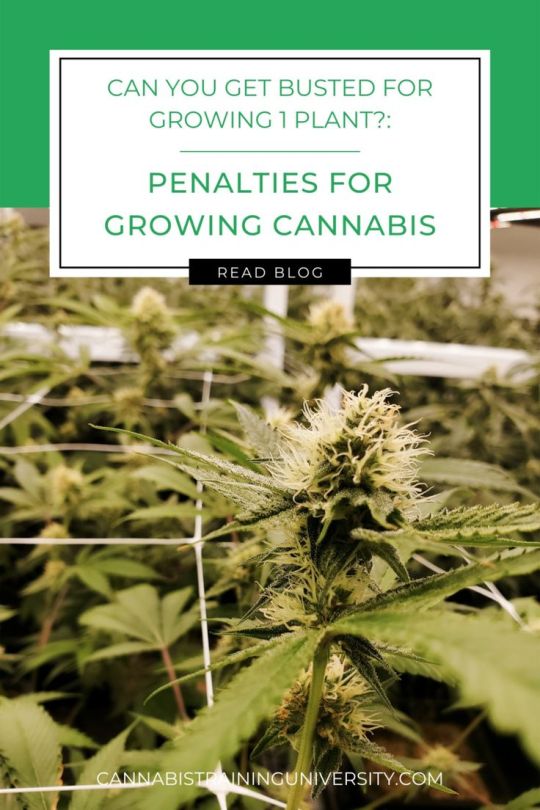
Know your cannabis grow laws! Legalization varies by state, so stay informed to avoid trouble. Get the latest on home cultivation regulations and penalties in the U.S. #CannabisLaws #HomeGrown #CannabisCommunity
0 notes
